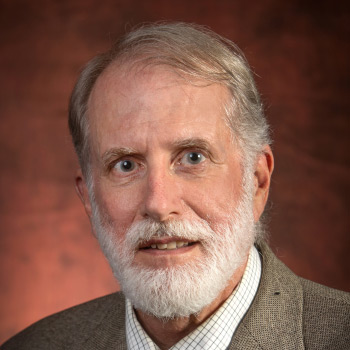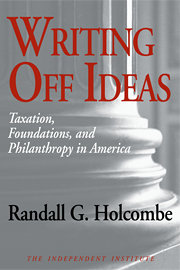A century ago, John D. Rockefeller, the nation’s wealthiest individual, was under attack for the monopolistic practices of his Standard Oil Company. Eventually the company was broken up by the government. Today, Bill Gates finds himself in a similar situation. Meanwhile, the legacy of Rockefeller’s business enterprise lives on, partly through today’s oil companies, but also partly because Rockefeller placed the bulk of his wealth in nonprofit foundations that have engaged in various activities over the past centuries. Similarly, Carnegie and Ford established foundations that still operate in their name, and remain among the nation’s largest. Recently, Gates eclipsed them all by creating the Bill and Melinda Gates Foundation, which is substantially larger than any other foundation.
Like Rockefeller, the legacy of Bill Gates will live on in the computer industry, but also in philanthropy, and to get some idea about what we might expect from the Gates Foundation, we can look back at the activities of the Rockefeller, Carnegie, and Ford foundations. When Rockefeller was alive, his foundations concentrated on medical problems in areas where he was confident that spending his money could make a difference. Carnegie built libraries with his money, and provided money for churches to buy organs. These philanthropists wanted to use their wealth in ways that could make an obvious and tangible difference in people’s lives.
After they died, their foundations took a different direction, and oriented their spending more toward social and political causes. The Ford Foundation was most active in this way, and the social and political ideas they promoted often were aimed against the capitalist system that had produced the wealth that funded them. Ironically, this wealth that had been generated by the remarkable productivity of the market system was now used against the system that created it.
Philanthropists like Carnegie and Rockefeller engaged in a different type of philanthropy when they were alive than their foundations have become involved indone after they died. The production of tangible benefits was replaced by attempts at social and political influence. One troubling aspect about this type of activity by foundations is that those who run the foundations are accountable to nobody for their activities. The person who gave the money is dead, and within broad limits the foundation’s trustees can spend the money in any way they think appropriate, without answering to anyone.
Other types of organizations try to promote the political and social ideas they favor, but are always accountable to others for what they do. Traditional charities must produce what their donors want, or their donors will quit giving, but foundations spend from their endowments and do not need to worry about the views of their deceased benefactors. Academic writing goes through a peer review process before it is published, and writers aiming at a popular audience must answer to the marketplace. Politicians rely on both campaign contributions and recurrent elections to maintain support for their ideas. Even politicians who finance their own campaigns, like Steve Forbes and Ross Perot, must believe in their ideas enough to spend money on them rather than something else. Foundations find themselves in the unique position of not being accountable to anyone for how they spend their money. Foundation trustees can spend anfrom an endowment’s resources—to promote their ideas, using other people’s money—to promote the ideas they favor.
This is a public policy issue because foundations today are governed largely by tax laws. Tax laws make it advantageous for the wealthy to create foundations, and tax laws set very broad limits on the types of activities foundations can undertake. The limits are so broad, however, that foundation trustees can promote whatever ideas they happen to like. Perhaps, considering the effect of the tax code on the creation of foundations, the ideas they produce should be written off, or at least viewed with more skepticism than ideas produced by sources that are more accountable for the ideas they promote.
Foundation spending to promote social and political causes only began in the 20th century, when the capitalist system produced enough wealth to establish these institutions, and the ideas foundations have promoted have altered the nature of public discourse in areas such as foreign policy, environmental protection, race relations, education policy, welfare spending, and other social policy issues. As substantial as foundation funding was in the 20th century, it promises to be even more influential in the 21st century as a new generation of capitalists such as Bill Gates set up foundations to spend the wealth they have accumulated.
Certainly Gates and other successful capitalists of the information age have the right to decide how to spend their money, but the problem is that their money will last well beyond their lifetimes, and once they are gone, the trustees of their foundations will be just as unaccountable for their actions as the trustees of the foundations created by the industrial giants of the last century. Who knows what causes they will support, but if the past is any guide, it is likely that their foundations will not spend their money the same way that those capitalists would have spent it if they could exercise direct oversight.
Intellectuals sometimes speak about a marketplace for ideas, but foundations are in a position to have an undue influence because they are exempt from any accountability in the ideas they promote. As foundation-funded ideas increasingly enter the public debate, as they surely will in the 21st century, there is every reason to be cautious about ideas that are promoted by people who are accountable to nobody.













